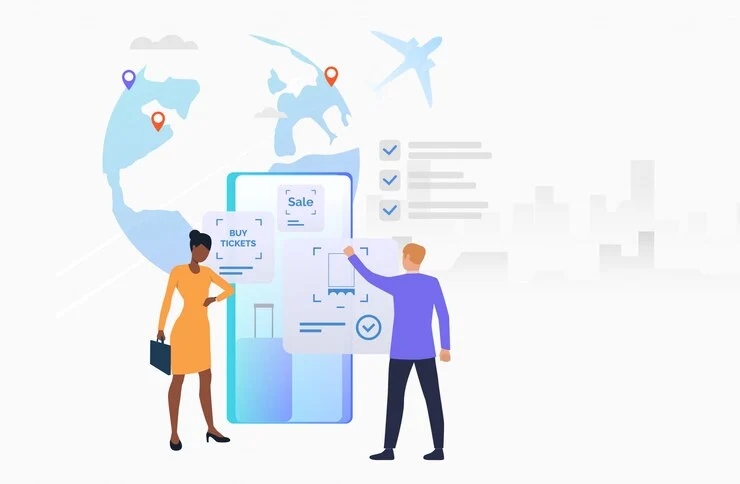The tourism industry, one of the world’s largest and fastest-growing sectors, is constantly evolving. With advancements in technology, changing consumer preferences, and global events influencing travel behavior, the future of tourism promises exciting developments. Here are some key trends shaping the future of the tourism industry:

- Sustainable Tourism
Sustainable tourism is becoming a priority for travelers and industry stakeholders alike. As awareness of environmental issues grows, more tourists are seeking eco-friendly travel options. This trend includes choosing accommodations that implement green practices, participating in conservation-focused activities, and traveling in ways that minimize carbon footprints. Destinations and companies that prioritize sustainability are likely to attract more conscientious travelers in the future. - Technology Integration
The integration of technology in the tourism industry is revolutionizing how we travel. From virtual reality (VR) tours that allow potential tourists to explore destinations before booking to AI-powered chatbots providing 24/7 customer service, technology is enhancing the travel experience. Augmented reality (AR) is also being used to offer immersive experiences at historical sites and museums. Additionally, mobile apps and digital platforms are streamlining travel planning, bookings, and payments, making travel more convenient than ever. - Personalized Travel Experiences
Modern travelers increasingly seek personalized experiences tailored to their preferences and interests. Data analytics and AI enable travel companies to offer customized recommendations and itineraries based on individual preferences. This trend extends to accommodations, where hotels and resorts offer personalized services and amenities to cater to specific guest needs, ensuring a unique and memorable stay. - Rise of Bleisure Travel
It is on the rise to combine business and leisure travel, or bleisure travel. As remote work becomes more prevalent, professionals are combining work trips with leisure activities. This trend is driving demand for flexible travel options that accommodate both business needs and personal enjoyment. Destinations and accommodations that cater to bleisure travelers, offering amenities like high-speed internet and workspaces alongside leisure facilities, are set to thrive. - Focus on Health and Wellness
Health and wellness tourism is gaining popularity as travelers prioritize their physical and mental well-being. This trend encompasses a wide range of activities, including spa retreats, yoga and meditation sessions, fitness vacations, and wellness workshops. Post-pandemic, there is also an increased emphasis on health and safety measures, with travelers seeking destinations that ensure cleanliness and provide health-related services. - Local and Authentic Experiences
Travelers are increasingly seeking authentic experiences that allow them to connect with local cultures and communities. This trend includes participating in local traditions, trying regional cuisines, and supporting local businesses. Travelers want to immerse themselves in the destination’s way of life rather than just visiting tourist spots. As a result, destinations that offer genuine cultural experiences and promote local heritage are becoming more popular. - Adoption of Smart Tourism
Smart tourism leverages data and technology to enhance the travel experience and manage tourism resources efficiently. This includes the use of IoT (Internet of Things) devices, big data analytics, and smart infrastructure. For instance, smart cities use technology to manage tourist flows, reduce congestion, and improve the overall visitor experience. Smart tourism solutions also enable destinations to offer real-time information and personalized services to tourists. - Emergence of Secondary Destinations
Over-tourism in popular destinations has led to the emergence of secondary destinations as attractive alternatives. Travelers are now exploring lesser-known locations to avoid crowds and discover hidden gems. This trend not only helps to distribute the economic benefits of tourism more evenly but also reduces the environmental impact on over-visited areas. Promoting secondary destinations offers travelers unique experiences while preserving the sustainability of popular spots.

Conclusion
The future of the tourism industry is being shaped by a combination of technological advancements, changing consumer preferences, and a growing awareness of sustainability and wellness. By adapting to these trends, the tourism industry can continue to thrive and offer travelers enriching and innovative experiences. For industry professionals and students in tourism and travel management, staying abreast of these trends is crucial to success in this dynamic field. As the world continues to change, the tourism industry will undoubtedly evolve, offering new opportunities and challenges for those ready to embrace the future.
Know more visit: Tourism And Travel Management Course – St. Teresa’s College






